Millions of Ukrainians, mainly women and children, have fled their country following the Russian invasion on February 24, with countries such as Poland and Germany taking in vast numbers of refugees. But as alleged atrocities against civilians in Ukraine continue, more and more people are expected to flee their country with just suitcases and little money.
The media have reported extensively on the conflict and the waves of refugees from western Ukraine into neighbouring countries, but there has been little or no coverage of the hospitality sector’s efforts to provide accommodation for the refugees, which in many instances has been done so free of charge, or at least at substantially reduced rates.
At a recent Open Door Initiative webinar, Alliance4Ukraine led the industry discussion on the challenges in finding accommodation quickly across Europe and further afield for hundreds of thousands of Ukrainians fleeing war. Nils Omland, who coordinates accommodation efforts at Alliance4Ukraine, outlined how they are trying to bring together all the different initiatives “so that, together, we can solve this huge, huge problem.”
Michael Widmann, CEO and Managing Partner of PKF Hospitality Group and co-founder of #HospitalityHelps, an initiative connecting displaced Ukrainian families with hotels, helped set the scene. Half of his family comes from Germany and the other half from Ukraine. He told the Open Door Initiative webinar they had anticipated the war a couple of weeks or so before the Russian invasion and had managed to get most of the family out of Ukraine, except for an 82-year-old grandmother who was too ill to travel.
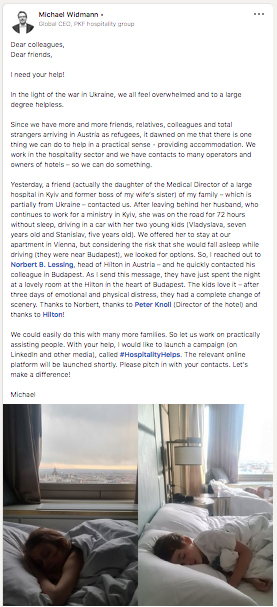 Widmann’s consulting firm, PKF, also had some two dozen employees in Kyiv, Ukraine’s capital. “We offered them to go on vacation before the war started,” but only one took up the offer at the time.
Widmann’s consulting firm, PKF, also had some two dozen employees in Kyiv, Ukraine’s capital. “We offered them to go on vacation before the war started,” but only one took up the offer at the time.
One friend with her daughter drove day and night, Widmann said, and after waiting for three days at the border, were able to reach Budapest in Hungary. The head of Hilton Hotels in Central Europe, a family friend, had reached out to offer help and “within half an hour we had a free hotel room,” Widmann said. “It was the first good thing which had happened to the family in basically four days. It was a bit surreal for them to be suddenly in a luxurious hotel after going through an existential crisis.”
“It dawned on us that we could make a difference,” Widmann continued, so he contacted other friends who are hoteliers to see if they could also provide rooms. Through an industry contact – Jonathan Worsley, chairman of conference organiser The Bench – Widmann was put in touch with Preben Vestdam, founder and CEO of HotelSwaps, a platform which allows hospitality professionals to book hotels at special rates, and began to explore the possibility of providing rooms on a large scale.
Vestdam takes up the story. “Because we are a reasonably small company, we can do things very fast.” Normally, he said, it would take about a month to set up a new reservation system but “actually we managed within 48 hours to set up a new platform where all the hotels which were willing to offer free rooms could load their rooms into the system and then we literally just invited people with a Ukrainian passport or residence permit to apply [for free hotel rooms.]”
Along with companies such as STR, major hotel chains like Hilton, Marriott, Accor, and Intercontinental have also helped out. The Hilton chain, for example, has made one million rooms available to refugees free of charge.
“So now we’ve passed 100,000 guest nights. When [the refugees] arrive in a town they can see what’s available.”
Word spread quickly and the supply of free rooms is struggling to match demand. “We need rooms,” Vestdam said, “even though we are constantly swinging somewhere between 20,000 and 50,000 room nights available on the booking platform. It’s also a matter of where they are spread across Europe. So, we [launched] it and it’s still growing exponentially.”
In addition to the major hotel chains, smaller hotel groups such as Dorint and Ruby also came on board, so the initiative now has more than 500 hotels in some 50 countries, Widmann said.
“We can accommodate maybe 10,000 people per day, but we would need 100,000-200,000 a day. So basically, we’re totally out of inventory every day.”
They have also collected donations and thousands of volunteers have helped out. “Our condition for anybody who wanted to work with us is everybody has to do it completely free of charge,” Widmann said, “so there are no reimbursements for anything. This was to help people, not make money.”
“What I need now, to be very direct and blunt, are rooms.” While he acknowledged support from Airbnb and Booking.com, Widmann said his focus is “to provide relief on the run, totally free of charge, online, across borders and brands.”
As for Booking’s involvement, its Head of Public Affairs DACH, Alexandra Wolframm, said it had set up a special rate for refugees. Starting in mid-March, this was initially rolled out in ten countries but has since been extended to an additional eleven countries. “It’s a temporary solution, [providing] temporary shelter for refugees.” This was initially going to continue to mid-April but now will continue to the end of June.
Hotel partners either offer free accommodation or reduced rates of up to 50 percent, Wolframm said, adding that the UN refugee agency and other NGOs distribute the rooms.
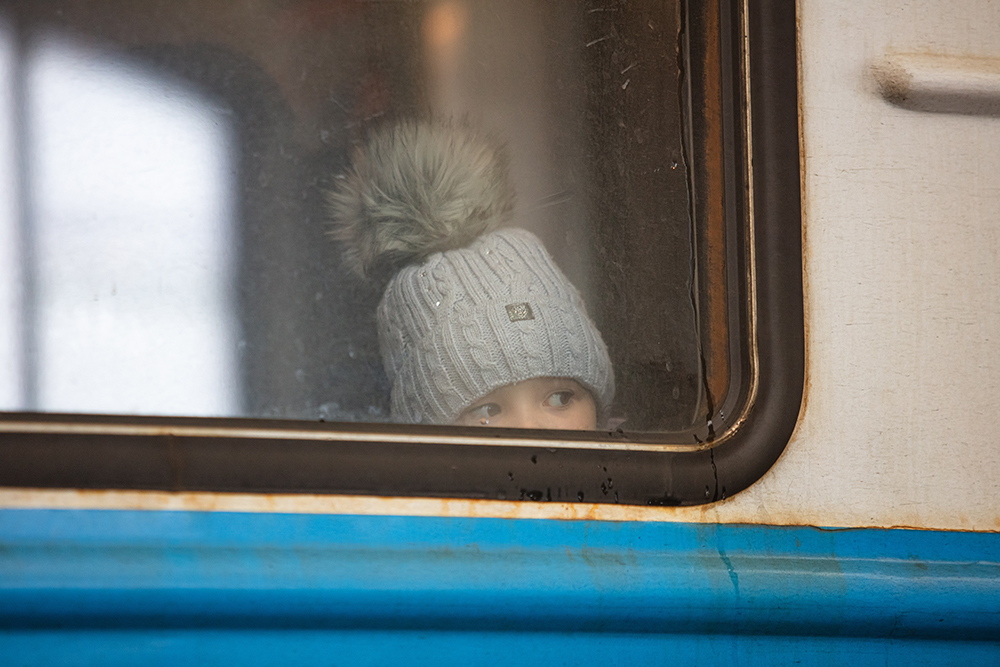 The apartment sector has also rallied to help out. Jan Hase, co-founder and CEO of Wunderflats, a temporary housing platform in Germany, outlined the contribution of the sector. “We don’t offer daily stays, but we help people find a place to get settled.”
The apartment sector has also rallied to help out. Jan Hase, co-founder and CEO of Wunderflats, a temporary housing platform in Germany, outlined the contribution of the sector. “We don’t offer daily stays, but we help people find a place to get settled.”
“Up to now we’ve provided almost 400,000 nights to people in almost 20,000 apartments. A lot of them are actually rented for more than six months and 70 percent are for free,” with the other 30 percent at “very low rates”. For instance, four-room apartments in Berlin are being offered to Ukrainians at 250 euros a month.
But once again, supply is an issue. “We still have roughly 50,000 requests from refugees and only 7,000 apartments left.”
#Unterkunft Ukraine, which had been connected to Booking.com through the Alliance4Ukraine initiative, had initially listed free private accommodation. This then went viral within days and quickly grew to some 370,000 offers of accommodation.
“We have helped connect more than 10,000 people with temporary homes,” said Felix Oldenburg of #Unterkunft Ukraine.
He also touched on the thorny issue of security to prevent abuses as concerns grow about human trafficking. #Unterkunft Ukraine has been working with aid agencies across Germany, he said, to ensure Ukrainians will be able to find “safe places and get follow-up support.”
It has been an “enormous learning curve,” Oldenburg said. “The long-term vision for #Unterkunft Ukraine is only emerging, but it’s becoming clear that free private accommodation for the first time can play a role in the response to a crisis like this, which is amazing if it works, and we need to make it safe to make sure it doesn’t get abused.”
“Imagine what this enormous number of people who have [offered to] open their homes could potentially do in future crises. But for that to materialize we’ll have to first master the enormous complexity of the response right now.”
Scale is clearly a major issue right now, along with the costs involved. This has, after all, been a very difficult period for the hospitality sector, given the challenges posed by the Covid-19 pandemic over the past two years. However, the response from the hospitality has been impressive.
“Let’s not forget that the tourism and hospitality sectors have been among the worst affected from an economic point of view, even with subsidies in place and government help,” said Wolframm of Booking. “This is the reason why we offer the possibility to offer free rates, but also heavily reduced rates.”
To avoid certain accommodation providers being overwhelmed with requests, Booking also decided that reservations would have to be made three days in advance, “in order to have a lot of rooms blocked and then maybe cancelled.”
Communication is another major issue. It had been difficult, Widmann said, for refugees to move from one country to another and deal with different organisations. The response to the crisis had been very fragmented, he said. “It’s our strength but it’s also our weakness.”
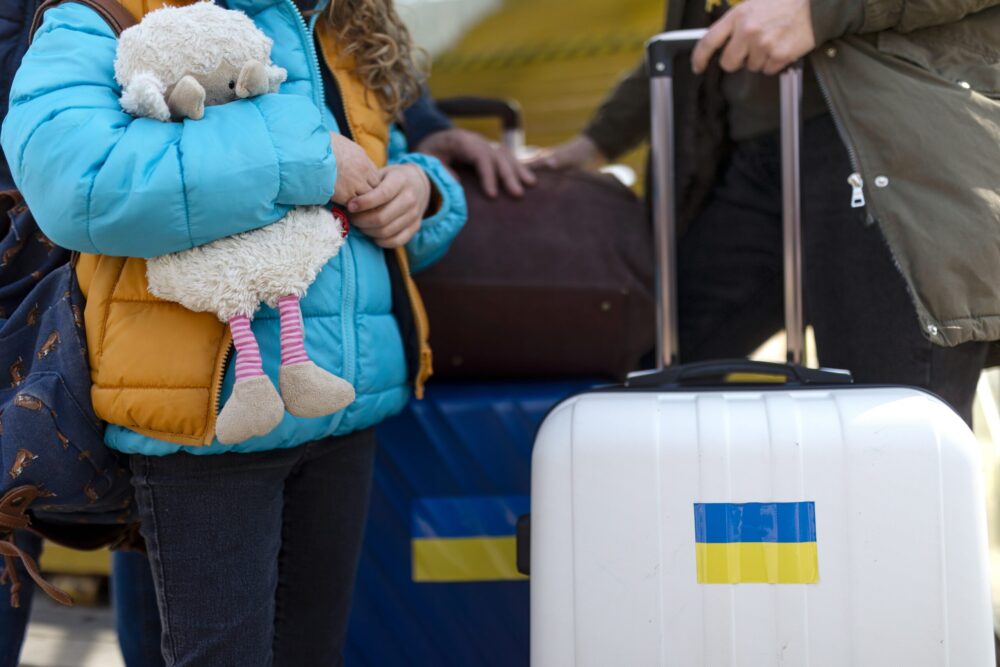 “It’s a nightmare,” Widmann added. “What’s very frustrating is that it’s very difficult to work together with local hotel federations. They want to push their own ideas and focus on only their own [agendas]. And it’s sad they can’t build a more international response.”
“It’s a nightmare,” Widmann added. “What’s very frustrating is that it’s very difficult to work together with local hotel federations. They want to push their own ideas and focus on only their own [agendas]. And it’s sad they can’t build a more international response.”
That said, some 90 percent of the supply of accommodation through the #HospitalityHelps portal had been with global chains, Widmann said.
In addition to structural issues, there have also been logistical challenges and practical problems. The scale of the influx had been “overwhelming”, he said, adding that, as #HosptialityHelps and other initiatives are very small organisations, they were “scrambling to get along.”
As for practical problems, some had been abusing the system, sending information about hotels in exotic locations to people who may not be refugees.
Then there is the possibility of medical emergencies and the issue of legal liability. “So, we’re running into thousands of practical problems locally,” Widmann said.
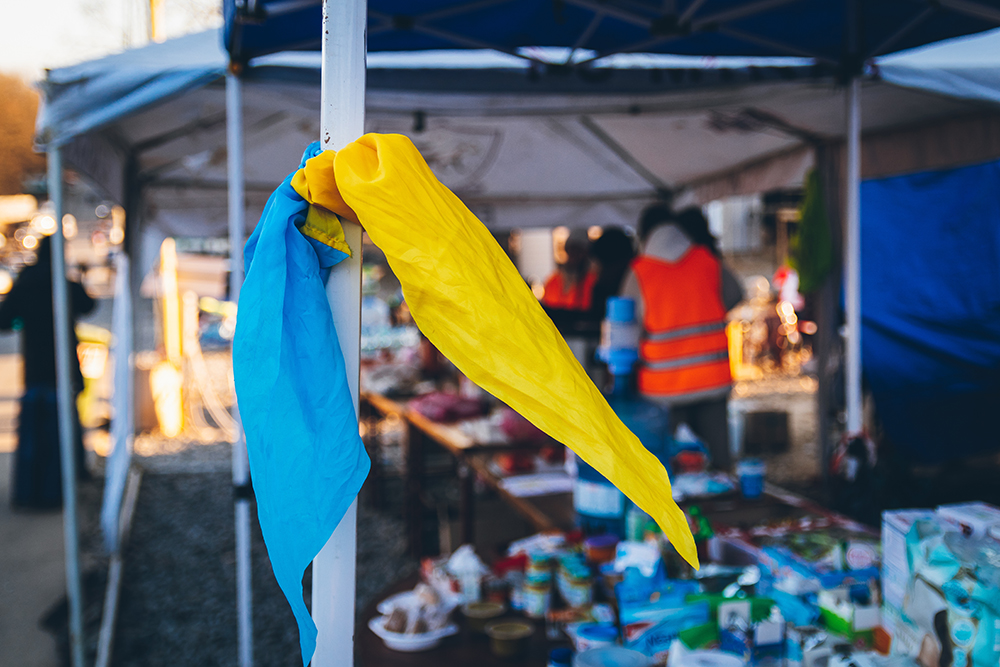 “No system is perfect. If you want to have a system that prevents abuse, you cannot do anything. So, we need to accept that when we help 100,000 people there may be 200-300 who will not be helped by the system, and you can’t avoid it.”
“No system is perfect. If you want to have a system that prevents abuse, you cannot do anything. So, we need to accept that when we help 100,000 people there may be 200-300 who will not be helped by the system, and you can’t avoid it.”
“People screw up and that’s life. If you can make some lives better – maybe a lot of lives – then you’ve accomplished something.”
If you have to act very quickly, mistakes are inevitable. Vestdam of HotelSwaps said that standard emails had been sent out to displaced Ukrainians, hoping they would have a ‘wonderful holiday’. Vestdam added: “We decided to launch [the system] anyway because the requirement to fulfill the need was more important than making it pretty and ensure everything was tailored. It was the only way of getting it out within 48 hours. It was hard work, but we got people into beds very early.”
In the future, platforms will have to offer more specific services as some people may not be comfortable with self-service offers and need support, Unterkunft Ukraine’s Oldenburg said.
“Over time there will be a whole range of solutions. We’re trying to put together a new puzzle and if we can put that puzzle together, we will truly have achieved something amazing.”
Summing up, Alliance4Urkaine’s Omland said: “While this crisis is tremendously cruel on one side, it also shows what we as humans can do if we work together, out of love for each other.”
So how can you help?
“We need rooms, money, manpower, programmers, volunteers. We need everything,” said Michael Widmann of #HospitalityHelps. “There’s nothing we don’t need.”
“The best help is [in the form of] kind words to people in need, lending a hand, and welcoming people with a smile. “
As Nils Omland of Alliance4Urkaine puts it: “You don’t have to reinvent the wheel.” If you have hotel rooms or an apartment available, “you can join or support one of the existing initiatives.”
“You don’t have to create your own platform because this will only create complexity and more chaos for the refugees.”
The Open Door Initiative webinar was hosted by HoCoSo’s Jonathan Humphries, Chris Mumford of Cervus Leadership Consulting, and Jon Hazan of Atlas Events.
Click here for more information about the Open Door Initiative
For any press inquiries please contact: rhea@hocoso.com
 About the Author – Stuart Pallister
About the Author – Stuart Pallister
After working as a television journalist in Asia and Europe for nearly 20 years for mainly CNBC and Asia Business News, BBC Radio and TV, European Business News, and McKinsey, Stuart switched to digital content development at INSEAD business school and the National University of Singapore. He then headed the Academic Editorial Content at Ecole hôtelière de Lausanne and launched its knowledge platform Hospitality Insights by EHL.
About the Hospitality Resilience Series
The Hospitality Resilience Series is a combination of online events, discussions, and insights aimed at helping build personal resilience and inner immunity within hospitality professionals. It is born from a collaboration between Jonathan Humphries, Chairman and co-founder of HoCoSo, Chris Mumford, founder of CERVUS Leadership Consulting and Jon Hazan, Founder and Executive Coach at ATLAS Coaching. The three co-host the series that aired in 2021 with a list of elite experts in the fields of wellness, wellbeing, nutrition, sleep, performance and mindfulness.


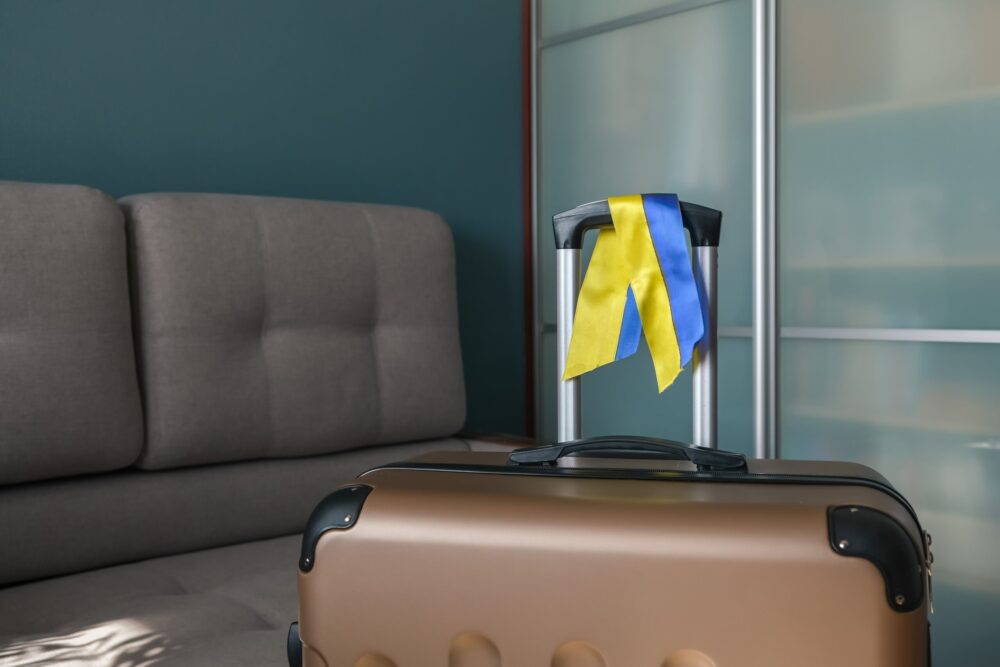
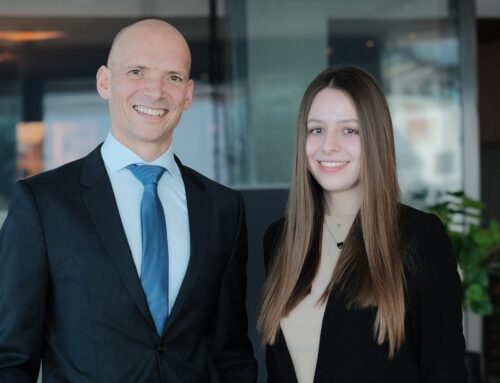



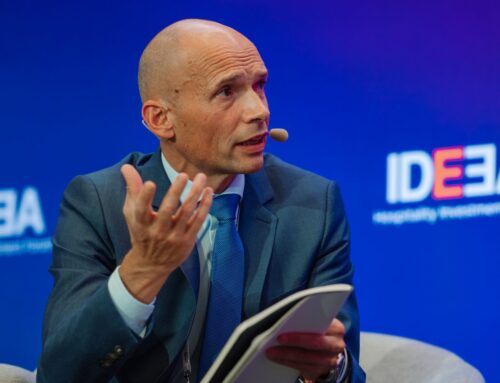
Leave A Comment